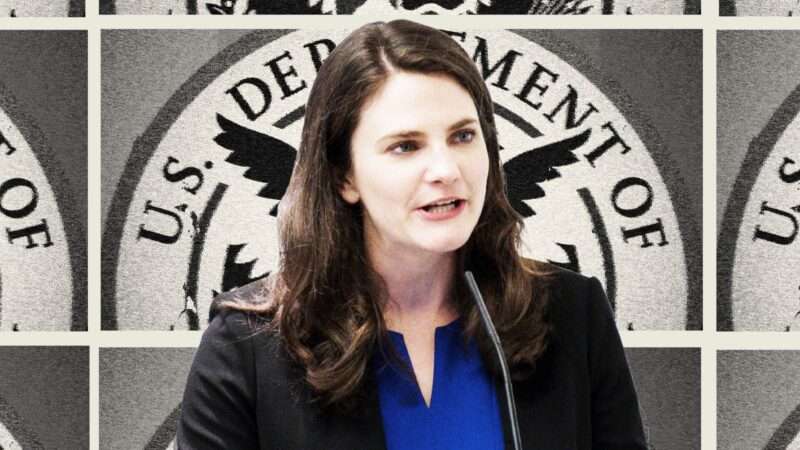
Dystopian fiction always has fascinated me because writers such as Philip K. Dick and Ray Bradbury based their stories on real-world trends—and simply took them to logical extremes. Storylines involving, say, departments of pre-crime that arrested people based on algorithms seemed preposterous, but have turned out to be creepily close to the mark.
It's hard to underestimate the absurdity of government directives and bureaucrats, so these tales—however chilling—often are quite funny. My favorite dystopian hero is Robert De Niro's character, Archibald "Harry" Tuttle, in the movie Brazil. He was the government's main enemy—a "villain" who fixed HVAC systems without a permit from Central Services.
That's almost as bizarre as the story of a government so paranoid that it created a Weather Bureau, overseen by an Office of Censorship, that promulgated complex rules for the dissemination of weather reports to keep them out of enemy hands. It only allowed newspapers to publish forecasts up to 150 miles from its publication city. That wasn't fiction, but was an actual World War II–era federal agency.
Now the Department of Homeland Security—having apparently learned nothing from past U.S. government absurdities or George Orwell—is launching a Disinformation Governance Board to police the internet. Homeland Security always sounded ironic enough, but a board of disinformation is a "truth is stranger fiction" situation.
If its rollout is any indication, then the board will be incompetent, duplicitous and will overstep its authority. DHS Secretary Alejandro Mayorkas announced the dubious project on April 27 but—and this fails even the most basic public-relations test—provided no real information about what it will do or how its agents will be held accountable.
It's the latest example of the oxymoronic nature of government intelligence—especially clear as the nation's security leaders seem blindsided by the amount of outrage this announcement has generated. "It is just an episodic failure," former DHS official Brian Murphy told the Associated Press. Indeed. As Orwell wrote in 1984, "It was a bright cold day in April, and the clocks were striking 13."
During congressional testimony about disinformation on the internet, Mayorkas said his agency established the board "to more effectively combat this threat, not only to election security but to our homeland security," per a Politico report. But the publication found this to be "an odd comment, given that DHS now says the board does not run or manage any department functions."
The takeaway is not to trust anything the Biden administration says about the matter. The board—and I don't think I'm going out on a limb—will probably use the fearsome power of federal security agencies to monitor online content and pressure social-media firms to remove content it calls disinformation. It will do so in the name of battling actual cyber threats from Russia and China.
Mayorkas has further eroded trust by proposing Nina Jankowicz, a former think tank fellow, as the board's director. As The Wall Street Journal's Daniel Henninger has explained, fighting "foreign propaganda isn't quite" how Janckowicz "defines the national-security threat from disinformation." He pointed us to a report she co-authored for the Wilson Center.
The authors say the report "strives to build awareness of the direct and indirect impacts of gendered and sexualized disinformation on women in public life, as well as its corresponding impacts on national security and democratic participation." They pointed to misogynistic "abuse and disinformation" on Twitter directed toward Vice President Kamala Harris.
Most Americans decry the viciousness and disreputable information that proliferates online. But this is not something the government can "fix"—at least not without undermining the basic tenets of our democracy. The "difference between opinion and disinformation is often contested—and many argue the government shouldn't be responsible for drawing the line," as that A.P. article noted.
The "many" who "argue" that point would no doubt include the nation's founders, who penned a First Amendment that forbids laws abridging the freedom of speech. In a free society—even one with an increasingly coarse and vile public culture—we sort out these things by letting everyone have their say. This is always news to a few people, but that amendment does not apply to private platforms.
Nevertheless, the nation does approach a true dystopia when a federal agency sets itself up as the arbiter of truth and then pressures those companies to do its bidding. We've already seen the Democratic administration exert regulatory pressure on social-media companies and lawmakers from both parties push for more government controls of the internet. This new board is even creepier.
Mayorkas claimed that, "we in the Department of Homeland Security don't monitor American citizens." But here's A.P.'s rebuttal: "In fact, DHS does. The sprawling department…has broad authorities to track and collect data on American citizens." Be afraid. Be very afraid. And you might want to re-read some of your dystopian favorites.
This column was first published in The Orange County Register.
The post Don't Trust Biden's Dystopian 'Disinformation Board' appeared first on Reason.com.







